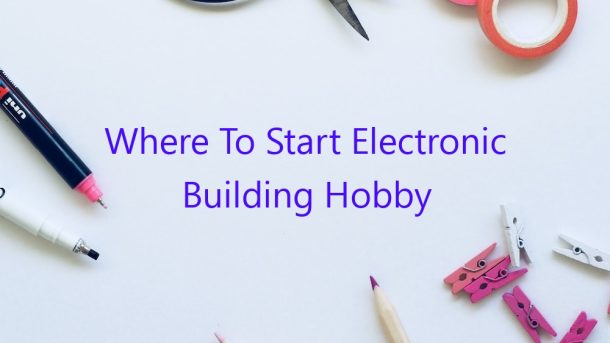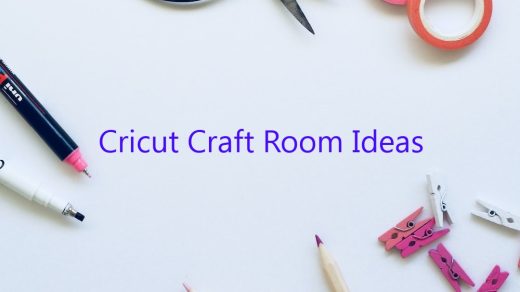So you want to get into electronic building? Or maybe you’re a seasoned builder looking for a new challenge? In any case, you’re in the right place. This article will provide you with all the information you need to get started in the fascinating world of electronic building.
First, let’s take a look at the different types of electronic building. There are three main types:
1. Circuit building
2. PCB building
3. Kit building
Circuit building is the simplest type of electronic building. In circuit building, you simply put together a series of electronic components to create a working circuit. This is a great way to get started in electronic building, as it doesn’t require any specialized tools or knowledge.
PCB building is a bit more complicated than circuit building, but it’s still relatively simple. In PCB building, you create a Printed Circuit Board (PCB) on which you will solder your electronic components. This type of building is a bit more challenging than circuit building, but the results are often more rewarding.
Kit building is the most complicated type of electronic building, but it also offers the most possibilities. In kit building, you assemble a kit of electronic components that are then put together to create a working circuit. This type of building can be quite challenging, but the results are often spectacular.
Now that you know the different types of electronic building, let’s take a look at the tools and supplies you need to get started.
The most important tool you need for electronic building is a soldering iron. A good soldering iron will have a variety of tips that can be used for a variety of tasks. It’s also important to have a good pair of safety goggles, as you’ll be working with hot metal and solder.
Other essential tools include a wire stripper, a screwdriver, and a pair of pliers. These tools will help you assemble and fix your electronic circuits.
Finally, you’ll need a few basic supplies. These include solder, flux, wire, and a variety of electronic components.
Now that you know what you need, let’s take a look at where to get started.
The best way to get started in electronic building is to start with a simple project. There are a number of great resources available online that can help you get started.
One of the best places to start is with the Arduino. The Arduino is a microcontroller that can be used to create a wide variety of electronic projects. There are a number of tutorials available online that can help you get started with the Arduino.
Another great resource is the Make Magazine website. Make Magazine is a website dedicated to all things DIY, and it has a wealth of information on electronic building.
Finally, don’t forget to check out the many online forums and communities devoted to electronic building. These communities are a great place to find tips, tricks, and project ideas.
So there you have it. electronic building is a fun and rewarding hobby that can provide you with hours of entertainment. With a little bit of research and practice, you’ll be able to create amazing electronic projects that are both fun and functional.
How do I get an electronic hobby?
An electronic hobby is a great way to learn about electronics and to have fun at the same time. There are many different types of electronic hobbies, so it is important to find the one that is right for you.
One popular electronic hobby is Arduino. Arduino is a platform that lets you build your own electronic devices. It uses a programming language called C++, which can be a little challenging for beginners. However, there are many online resources that can help you get started.
Another popular electronic hobby is Raspberry Pi. Raspberry Pi is a small computer that you can use to build your own devices. It is also a great way to learn about programming and computer science.
If you are looking for a hobby that is a little more relaxing, you may want to try electronic knitting. Electronic knitting uses a special knitting machine that connects to your computer. This allows you to knit designs that would be impossible to knit by hand.
No matter what your interests are, there is sure to be an electronic hobby that is right for you. So get out there and start learning about electronics!
Can you learn electronics as a hobby?
Yes, you can learn electronics as a hobby. Electronics is the study and use of devices and systems that use electricity to control and convey information. It covers a wide range of devices, from simple circuits to complex computer systems.
There are many different ways to learn electronics. You can take classes at a local community college or university, or you can learn from books, online courses, or videos. You can also find online forums and communities where electronics hobbyists can share tips and advice.
One of the best ways to learn electronics is to start by building simple circuits. You can find a variety of circuit diagrams and projects online. Once you have a basic understanding of how circuits work, you can move on to more complex projects.
One of the benefits of learning electronics as a hobby is that it can be applied to a variety of different fields. For example, you can use electronics to build circuits and control systems for robots, cars, or home appliances. You can also use it to create or modify electronic devices, such as radios, televisions, or computers.
Overall, learning electronics as a hobby can be a fun and rewarding experience. It can help you develop a basic understanding of how electronic devices work, and it can also be applied to a variety of different fields.
Where do I start with electronics?
If you’re new to electronics, it can be daunting to know where to start. This article will provide you with a few tips to help you get started.
The first thing you’ll need is some basic equipment. You’ll need a soldering iron, solder, wire cutters, and pliers. You may also want a breadboard and some jumper wires.
Once you have the basic equipment, you’ll need to learn the basics of electronics. This includes learning about resistor values, capacitors, transistors, and diodes. You can find a lot of information online, or you can take a class at a local community college.
Once you have a basic understanding of electronics, you can start building simple circuits. A good place to start is with a basic LED circuit. You can find a lot of tutorials online that will show you how to build this circuit.
Once you have a basic understanding of electronics and have built some simple circuits, you can start experimenting with more complex circuits. Be sure to read the datasheets for the components you are using, and always use a resistor when connecting a LED to a power source.
If you’re interested in learning more about electronics, there are a number of great books available on the subject. “Getting Started in Electronics” by Forrest M. Mims III is a great place to start. “The Art of Electronics” by Horowitz and Hill is also a great resource.
With a little bit of effort, you can be on your way to becoming a electronics expert.
Is Arduino a good hobby?
Arduino is a microcontroller board with a Processing-based software environment. It is designed to make the process of using electronics in projects more accessible. Arduino boards are available commercially, but can also be made by hand.
The Arduino software includes an editor and a software simulator. The Arduino hardware includes a microcontroller, a USB connection, and an on-board power supply.
The Arduino software is open source, meaning that it can be used, modified, and shared by anyone. The Arduino hardware is also open source, meaning that anyone can make their own Arduino boards.
Arduino is a good hobby because it is affordable, versatile, and easy to use. Arduino boards are available for purchase for around $20, and the Arduino software is free to download. Arduino is also versatile, meaning that it can be used for a variety of projects. Arduino is easy to use, meaning that anyone with basic knowledge of electronics can get started with it.
What are the basics of electronics?
What are the basics of electronics?
Electronics is the study of the behavior and effects of electricity and electronic systems. It is a vast and rapidly expanding field, with applications in everything from telecommunications and information technology to aerospace engineering and biomedical devices.
At its most basic, electronics is the study of how electric current flows and how it can be controlled. Electric current is the flow of electrons through a conductor, such as a metal wire. It is measured in amperes (A), and the more current that flows, the greater the power.
In an electronic system, current is used to create or control signals. A signal is a change in voltage or current that represents information. Signals can be used to transmit or store data, or to control the operation of electronic devices.
The three basic elements of an electronic system are voltage, current and resistance. Voltage is the force that drives current through a circuit. Current is the flow of electricity, and resistance is the opposition to current flow.
In a simple circuit, voltage is provided by a battery, and current flows through a resistor. The resistor converts the electrical energy into heat, light or other forms of energy.
In more complex circuits, voltage and current can be controlled by switches, transistors and other electronic components. These components can be used to create signals that represent information.
The basic principles of electronics are easy to learn, but there is a lot of complex and specialized knowledge to learn if you want to become a professional electronics engineer. However, even if you don’t want to become a professional, understanding the basics of electronics can help you design and build your own electronic projects, and it can make you a more informed consumer of electronics products.
Is Arduino a good way to learn electronics?
Arduino is a microcontroller development platform based on open-source hardware and software. It’s popular for hobbyists and students because it’s relatively easy to learn and use, and it’s a great way to get started in electronics.
Arduino is a good way to learn electronics for a few reasons. First, Arduino is relatively easy to learn and use. The Arduino software is based on the Processing programming language, which is designed for students and beginners. The Arduino hardware is also simple and easy to use, with a standard programming interface and a wide range of supported modules.
Second, Arduino is a great way to get started in electronics. Arduino is a very versatile platform, with a wide range of modules and capabilities. It can be used to control motors, LEDs, and other electronics components. Arduino can also be used to create complex projects, such as interactive displays, robots, and musical instruments.
Third, Arduino is a great way to learn about electronics. Arduino is based on the popular Atmel AVR microcontroller, and it includes a wide range of features and capabilities. Arduino also supports a wide range of programming languages, including C++, Java, and Python. This makes Arduino a great platform for learning about electronics and microcontroller development.
What electronics should I learn first?
There are a variety of electronics that one can learn. It can be daunting to decide which one to start with, but with a little bit of guidance, it can be an easier process.
One of the most basic types of electronics is digital electronics. This includes things like microcontrollers and basic logic gates. If you are interested in learning about how digital devices work, then this is a great place to start.
Another common type of electronics is analog electronics. This includes devices like amplifiers and oscillators. If you are interested in learning more about how signals are processed, then analog electronics is a great place to start.
Finally, there are also a variety of specialty electronics that one can learn. This includes things like RF electronics and power electronics. If you are interested in a specific area of electronics, then it is a good idea to research which one is best for you.
Ultimately, the best electronics to learn first depends on your interests and goals. With a little bit of research, you can find the right type of electronics for you.




